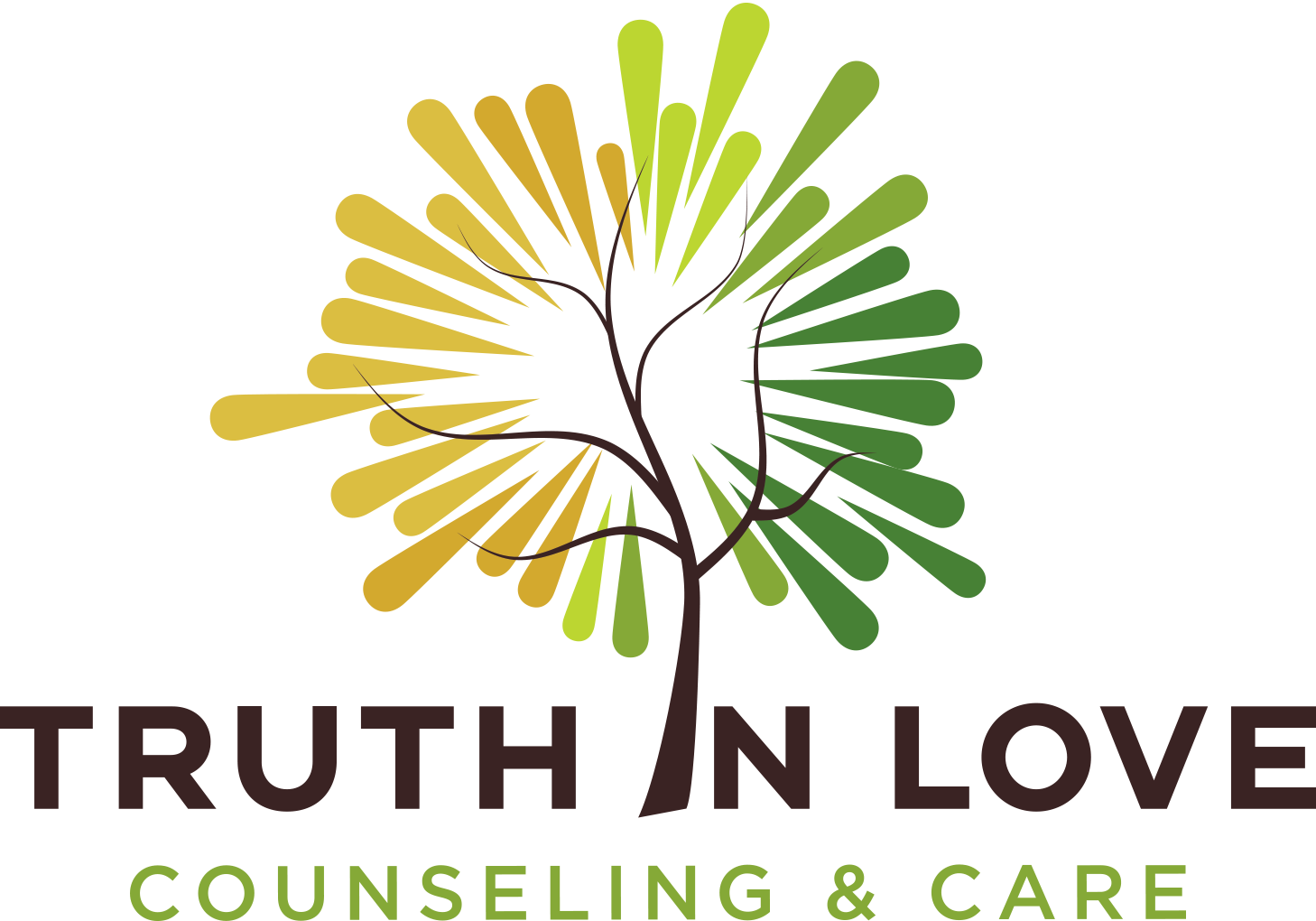At Truth in Love Counseling, we have a strong desire to be a trusted resource for Pastors and Church Leaders. We hope the following information will inspire confidence that we will care for the members of your congregations with utmost respect and integrity. We welcome your questions and open discussion about how our resources and services can contribute to the overall health of our Christian Community.
Information for Pastors
“Instead, we will speak the truth in love, growing in every way more and more like Christ, who is the head of his body, the church.”
Ephesians 4:15 NLT
Our name and logo were born out of this verse. It is our belief that lovingly speaking Truth, as it is written in God's Word and revealed through the Holy Spirit, in the context of a safe and connected relationship, creates fertile ground for God to heal hearts and minds and inspire lasting change.
FAQs
What is your approach to understanding people's problems and helping them grow and change through counseling?
At Truth in Love Counseling, we consider physical, emotional, mental, and spiritual perspectives in order to understand people’s problems. We recognize that there can be multiple causes of dysfunction and therefore, multiple strategies for treatment and healing. Once physical and mental disorders are identified and treated or ruled out, we move on to the emotional and spiritual factors. We see people as wounded, whether by others in their past, traumatic experiences, their own negative beliefs, or the results of sin. Our desire and efforts are focused on acknowledging the whole truth of their experiences, both positive and negative, and encouraging responsibility for what they have the power to change. By staying sensitive to the leading of the Holy Spirit in our lives, we support, encourage, challenge, and exhort people to live according to God’s standards; to love freely, to forgive quickly, to speak truthfully, and to act righteously.
Are you a Christian? How does your faith affect your view and practice of counseling?
Truth in Love Counseling is an overtly Christian organization. We have dedicated Christians, actively involved in our respective churches, unashamed to proclaim the gospel to our clients, and submissive to accountability. Our Christian worldview is the starting point of our counseling and permeates every aspect of it.
Do you bring Christian truth into your counseling practice? How? What role does Scripture play?
We do bring Christian truth into our practice…it is the only truth to stand on. Fortunately, most “best practices” of the psychotherapy field are man’s attempts at scientifically addressing principles of the Creator. Therefore, we can be confident in being both Christian and Professional Counselors. As for Scripture in practice, it is the primary source of Truth that we draw on. At the same time, we respect each individual counselor’s style and preference in how they use Scripture in sessions. We also must be sensitive to a client’s religious views and practices. We make sure clients understand we are Christian and practice from a Christian worldview, but we do not limit who we work with to only Christians. We take the opportunity to share the Gospel, but we do not force our beliefs onto anyone.
What is your stance on medication?
Medicine plays an important role in mental health. Research is clear that many mental illnesses have a biological base and that medication can improve functioning and quality of life. However, medication alone is usually not sufficient. Therapy is needed to identify negative patterns, heal wounds, and motivate lasting change.
What is the church's role when you counsel with an attendee/member?
A client’s church can be an important source of support in times of crisis. Frequently, it is the church that first encourages someone to seek counseling. The extent of involvement church leadership has in the actual therapy process is dependent on the client. It must be client-initiated and proper authorization forms must be secured. When working with individuals, couples, and families, we feel responsible to consistently encourage clients to live out of their values and to evaluate if their behavior is consistent with what the Bible says. However, whether they behave in accordance with their church’s standards is not within our scope of responsibility.
How is counseling different from discipleship?
There are certainly similarities, even overlaps, between counseling and discipleship. Both encourage growth and a healthy understanding of who one is, who others are, and who God is. Both address faulty thinking. Both ask for work, energy, and participation from the person being counseled/discipled, and both can have life-changing results. There are some differences, however. Discipleship ought to be an ongoing, life-long endeavor. It is often done in the context of a church, small group, or bible study. Counseling is done in a more confidential setting with trained professionals. Counseling is generally more intense and short-term than discipleship. It deals with crises, mental health, severe woundedness, and relationship dysfunction.
What are some books/resources you frequently recommend that have most influenced your approach to counseling?
Boundaries by Cloud & Townsend (and others in their series), The DNA of Relationships by Gary Smalley, Victory Over the Darkness by Neil Anderson (and others in his series), Torn Asunder by Dave Carder, Wild at Heart by John Eldridge, Pleasures Evermore: The Life-changing Power of Enjoying God by Sam Storms, The Lies We Believe by Dr. Chris Thurman, Love, and Respect by Emmerson Eggerichs, The Meaning of Marriage: Facing the Complexities of Commitment with the Wisdom of God by Tim Keller, The Ragamuffin Gospel by Brennan Manning and Loosening Your Grip by Harold Shank. (All therapists contributed to this list.)


